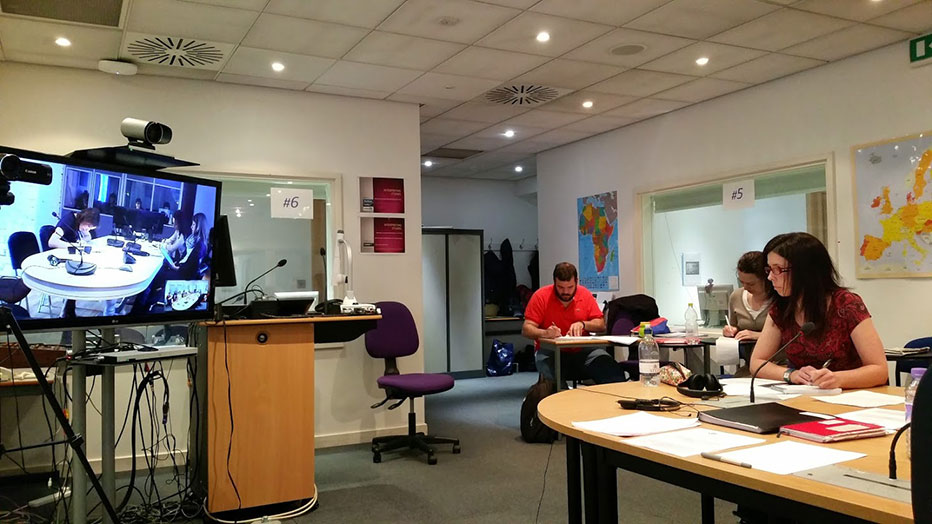On Tuesday, 5 May, interpreting students were able to practice interpreting at one of the most prestigious interpreting schools in Europe
Date: 08/05/2015
Virtual classes are not new. We have been using them for four years now. It is a synchronous collaborative learning tool (video conference) that allows interpreting trainers to connect across institutions in the world and with the European institutions and the UN.
London Met MA Interpreting students are able to practice interpreting with other interpreting students from Romania, Poland, Spain, Russia, France, Belgium, Ghana, the European Commission and the United Nations at one of the most prestigious interpreting schools in Europe: ISIT (Institut Superieur de Traduction et d'Interpretation - Paris).
Virtual classes are fully integrated to the Master's in Interpreting and Conference Interpreting and London Met delivers an average of 18 virtual classes of two hours each every year.
Planning a virtual class is quite different from planning a normal class. You need to collaborate with colleagues in the partner institutions and negotiate learning styles, learning outcomes, language combinations to practice, topics, the invitation of experts with the right language combination to provide speeches and feedback, technicians to test the equipment and administrators (in many cases, it is the same person organising it all). It is important to have a detailed programme and manage turn taking whilst speaking. Virtual classes are recorded and can be revisited.
For London Met interpreting students, it means additional practice, feedback from experts in the field who do not know them, additional sources of speeches in languages that can be challenging to find. Interpreting students then experience the pressure to perform well remotely, making the most of technology, sometimes using language combinations that are still fairly new such as Russian into Italian.
This week, English into French was practised but all other students were able to use the English speeches to practise in their own language combination. The topic was gender equality. Topics that reinforce the themes are normally used during mock conferences and students need to research the topics, build a glossary of terminology and concepts and learn the words by heart. Interpreting is quite different from translation; there is no time to check any word in the dictionary. It has to be instant. Interpreting students had to listen to a 6 to 11 mn speech, understand, analyse the information, take notes in a specific way learnt during the course and render the same speech in the other language as if they were the original speaker. Not an easy task but they did it very well!
Well done to all interpreting students who took part to the virtual class on Tuesday and good luck for your exams.
Our warmest thanks to Martin Messias for supporting us so well with the technology.

